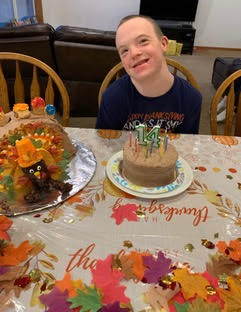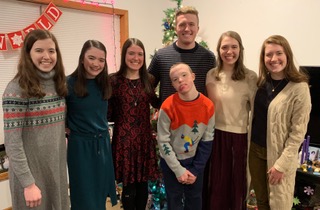March 21 marks the observance of World Down Syndrome Day—a celebration of the countless individuals that bless our world with this condition.
However, the fight to recognize the value of all life continues, and the statistics are staggering.
Ninety-five percent of babies with Down syndrome in Ireland are reportedly aborted. Iceland claims to have “eliminated” Down syndrome by killing 100% of babies with Down syndrome by abortion.
In the U.S, approximately 74% of expectant parents abort a child with Down syndrome.
This brutal landscape is in stark opposition to the beautiful experiences of families who choose to give life to babies with Down syndrome.
The reality is Trisomy 21 is not a death sentence, it’s a blessing. I believe that we are at a moment of grace in this country where we can call deeper, and more profound attention to human life with special needs. Ultimately, I think the personal stories and the faces attached to the diagnosis are how hearts will be changed.
[Click here to subscribe to Pregnancy Help News!]
Fourteen years ago, upon learning that my little brother was born with Down syndrome and would do some things more slowly than his siblings, my eight-year-old self spontaneously responded with, “It’s not a race!”
Words cannot express the blessing that Gabriel is to his parents, six siblings, and to his many other family members and friends.
This young man has had an overwhelmingly powerful influence on those who know and love him.

He makes life fuller and richer in every way! Gabriel is the most loving and self-giving person I know, and I believe he has his finger on the pulse of what life is truly about. There is not a thing about him I would change. The fullness of Gabriel’s life is not measured by his external abilities, but rather his eternal value as a child of God.
Just before we entered the hospital room, my dad told my siblings and me that there was something extra special about our new brother, Gabriel.
In his words, we had a beautiful and healthy baby brother who was truly a blessing to our family. Dad told us that Gabriel had what is called Down syndrome. He said that Gabriel was perfect and needed lots of our love.
He also said that it may take him longer to learn how to do certain things. Dad said it was not really a big deal because we were all going to help Gabriel.
I distinctly recall telling him in a matter-of-fact way: “Well, it’s not a race, Dad!”
Where that came from, I cannot tell you. But I do know that this mantra that life, learning, and achievement are not diminished by a “disability” still holds true today.
Not knowing what Down syndrome was at the time, I can now undoubtedly say that my knowledge of it would not have mattered. Without being able to express it at the time, I somehow knew Gabriel’s Down syndrome was only a small part of him, it was not his identity.
“I just felt blessed,” was my mom’s response to what she felt when she learned of Gabriel’s diagnosis at birth.
This was a grace. This is not meant to indicate that other responses are not genuine or appropriate. However, my mom’s response shows that a special needs diagnosis does not need to be a moment of grief, but rather a celebration of life.
My own experiences tell me that yes, a child with special needs will affect your family life, but in the best possible way!
Even though Gabriel may not conform to the “ideals of society,” he clearly teaches me that life, learning, and achievement are not a race, and this has permeated all aspects of my life.
For far too long, persons with special needs have been targeted as not worthy of life.
Tweet This: Life, learning, and achievement are not diminished by a “disability”

We were endowed by the Creator to reverence all human life. Seeing all life through a lens that celebrates the dignity, self-worth, intrinsic value, and above all the immortal soul of each person will enable us to strongly defend all human life from conception until natural death.
The right to life is uncompromisable and is an exercise of our free will in defense of the most vulnerable.
I echo the words of St. John Paul the Great, who said, “Freedom consists not in doing what we like, but in having the right to do what we ought.” (Pope John Paul II, Apostolic Journey to the United States of America, 1995).
My hope is that Gabriel’s story will inspire others to see the infinite value of individuals with special needs in their own lives.
Editor's note: Jacinta Hamilton is the oldest of seven children in her family. She is a senior at the University of Iowa majoring in elementary education and also teaches ballet to young children.






